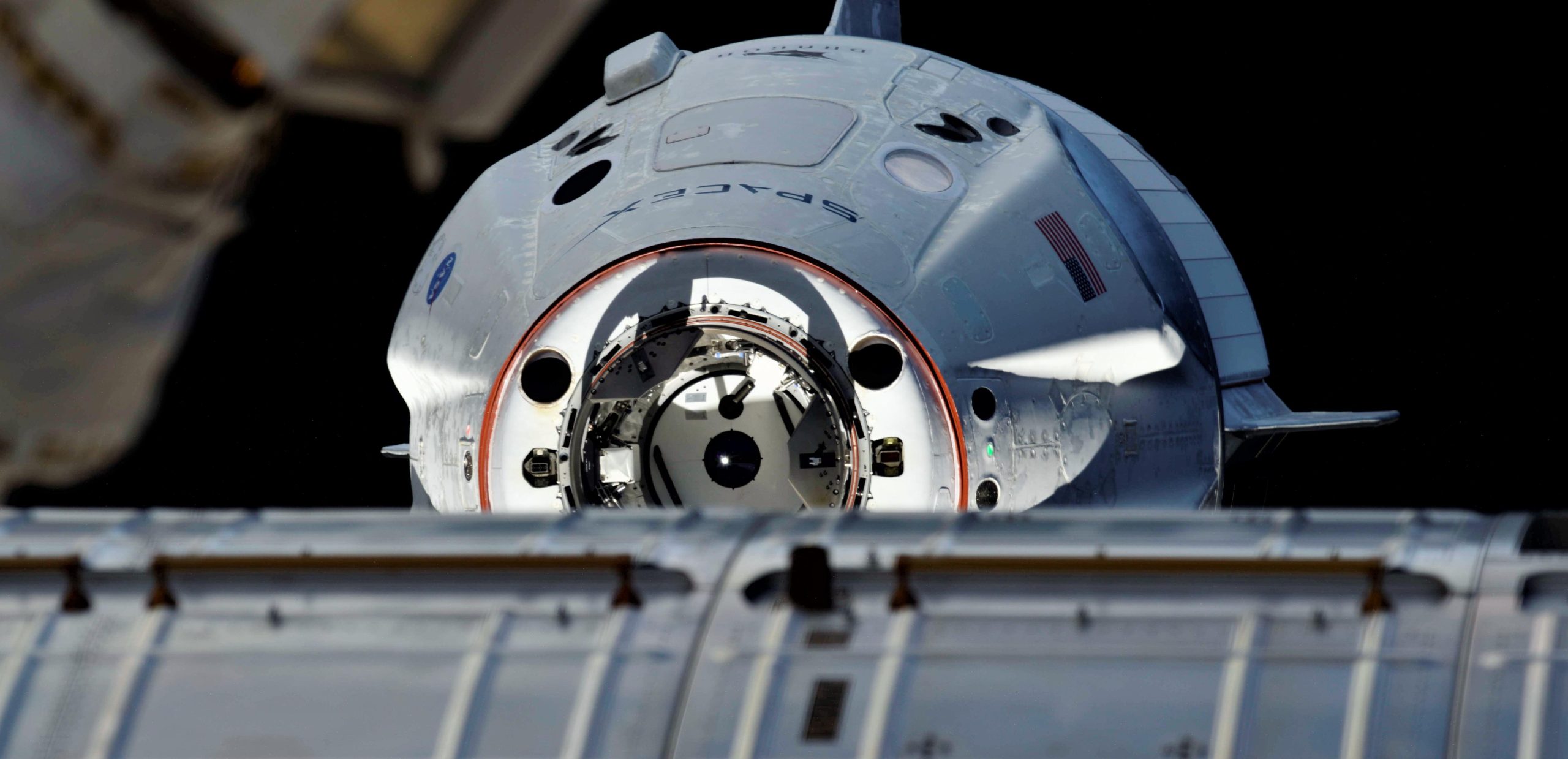
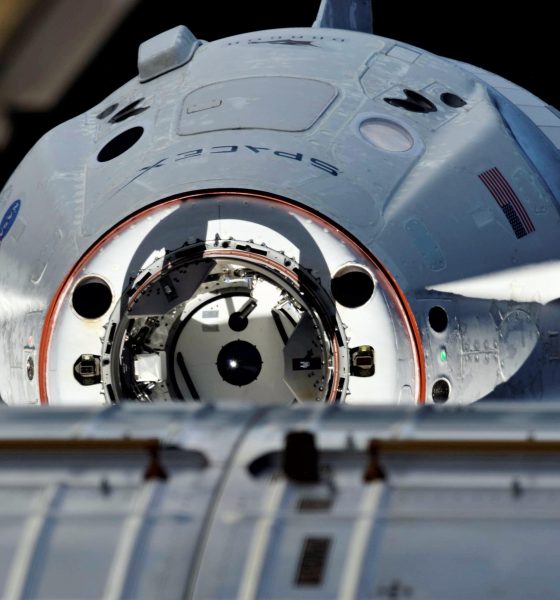
News
SpaceX's first NASA astronaut launch closer than ever as spacecraft and rocket near Florida
According to an engineer’s February presentation, SpaceX is on the brink of shipping its first NASA astronaut-rated Crew Dragon spacecraft to Kennedy Space Center – arguably the company’s biggest milestone yet on the path to human spaceflight.
In the last year, SpaceX’s Crew Dragon program has undeniably stumbled a few times, suffering challenging parachute failures and the catastrophic explosion of the first flight-proven Crew Dragon capsule. However, the year has been filled with far more successes. By all appearances, Crew Dragon’s parachute issues have been completely solved, while SpaceX successfully static fired an upgraded Crew Dragon’s SuperDraco engines before launching a flawless in-flight abort (IFA) test just last month.
Prior to all of this, SpaceX’s Crew Dragon spacecraft completed what NASA deemed a “flawless” and “phenomenal” orbital launch debut, docking with and departing the space station without issue before safely reentering Earth’s atmosphere and splashing down in the Atlantic Ocean. Now, ten months after that flawless debut, SpaceX is perhaps just a week or two away from reaching a major milestone ahead of its first NASA astronaut launch.
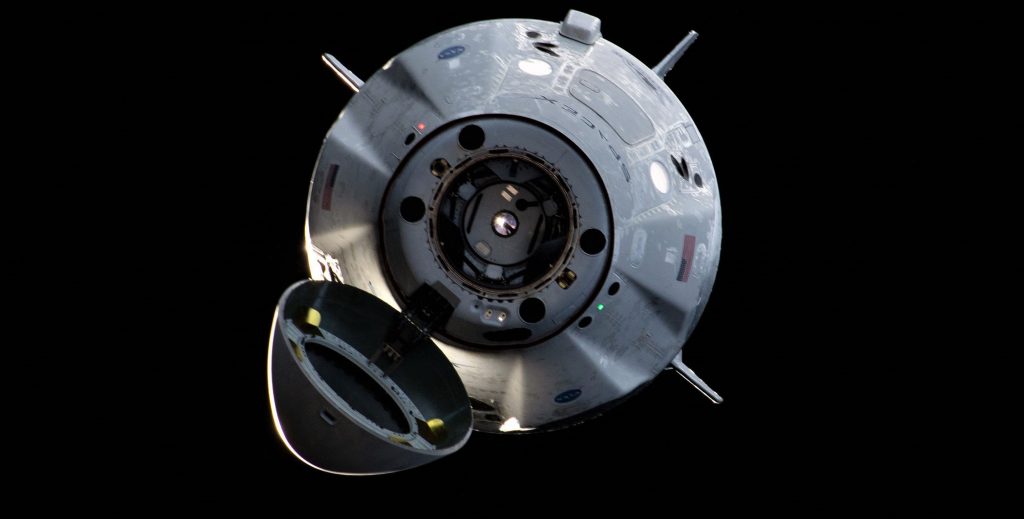
Part of some kind of Kennedy Space Center (KSC) event on February 1st or 2nd, SpaceX Director of Vehicle Integration Christopher Couluris gave an exceptionally insightful presentation that was apparently recorded and (very) briefly available on YouTube. Aside from a great deal of new and useful information on Falcon booster reusability, Starship manufacturing, and more, Couluris also teased some major news for SpaceX’s Crew Dragon spacecraft.
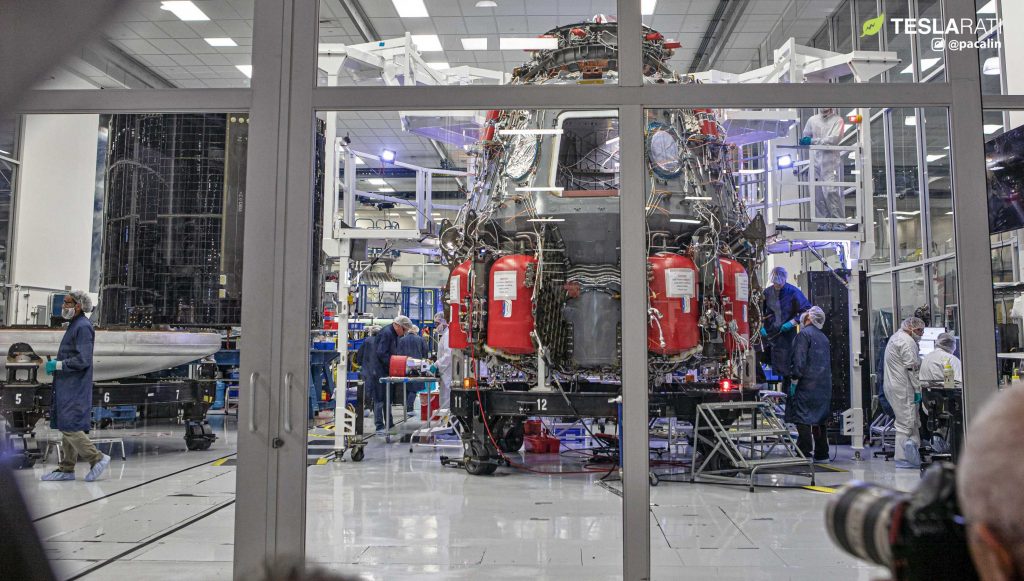
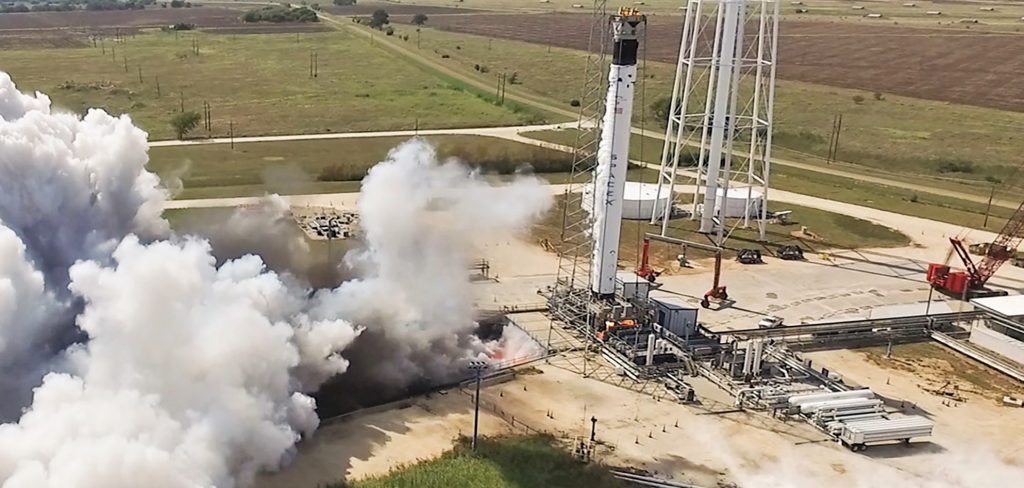
In short, Couluris revealed that the Crew Dragon spacecraft – capsule C206 and an expendable trunk – assigned to SpaceX’s ‘Demo-2’ NASA astronaut launch debut could arrive at the company’s Florida Dragon processing facilities as early as mid-February, just a week or two from now. At the same time, comments the SpaceX engineer made about the number of SpaceX rocket boosters currently in Florida heavily implied that the Falcon 9 rocket assigned to said astronaut launch debut is already at KSC Launch Complex 39A (or at least nearby).
In other words, after Crew Dragon arrives, SpaceX will have all the hardware on hand and ready for its first NASA astronaut launch – arguably the single most important mission in the company’s history. Barring calamity, all that will remain is a few weeks of processing and an indeterminately long period of NASA/SpaceX reviews and paperwork. Elon Musk recently stated that he was confident that Crew Dragon Demo-2 would be fully ready to launch as early as April 2020, although May or June are also a strong possibility.
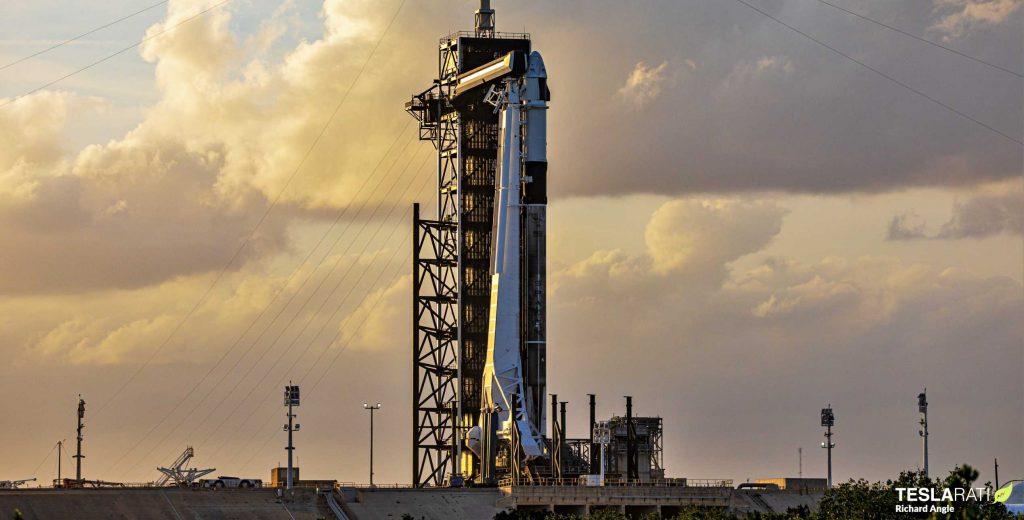
Funded by NASA and designed and built by SpaceX, Crew Dragon (Dragon 2) is an upgraded version of the company’s workhorse Cargo Dragon (Dragon 1) spacecraft, which has successfully performed 18 International Space Station (ISS) resupply missions in just eight years. While there’s a chance that SpaceX will ultimately use Crew Dragon for its own needs, like private orbital tourism, the spacecraft’s primary purpose is to routinely carry NASA astronauts to and from the Space Station – a capability the US has not had since NASA and Congress prematurely killed the Space Shuttle in 2011.
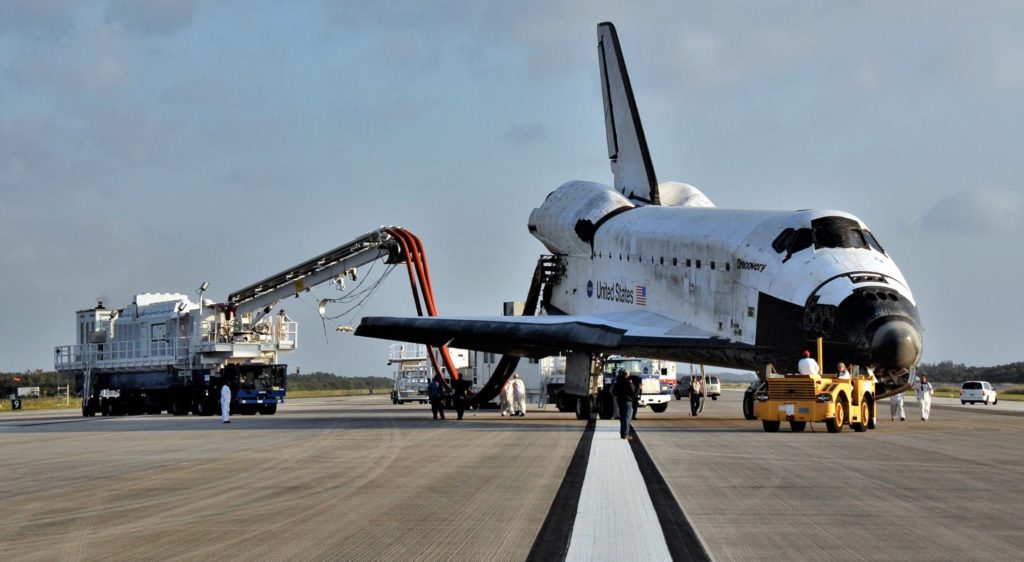
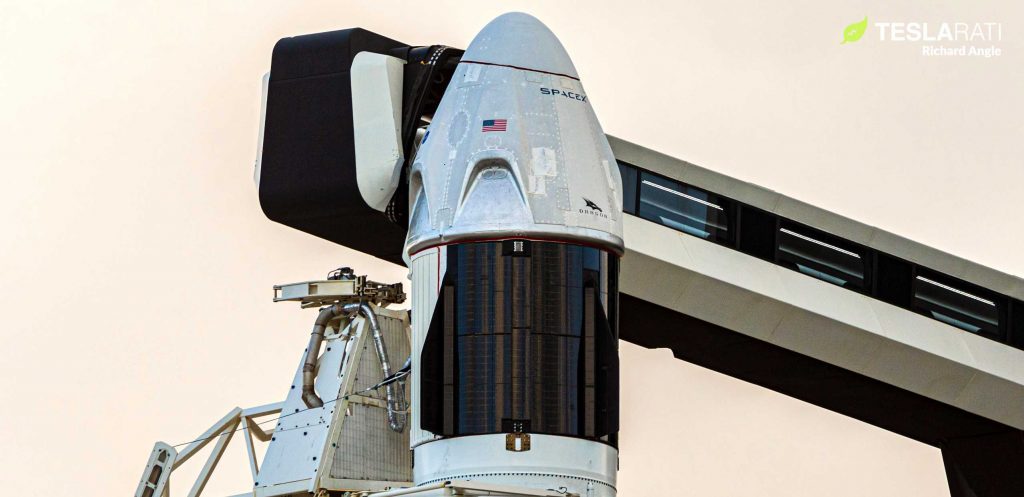
Originally intended to launch as early as 2017, both SpaceX and Boeing suffered major delays as they worked through the many challenges associated with human spaceflight and grappled with several years of egregious Congressional underfunding.
Check out Teslarati’s Marketplace! We offer Tesla accessories, including for the Tesla Cybertruck and Tesla Model 3.

Elon Musk
Celebrating SpaceX’s Falcon Heavy Tesla Roadster launch, seven years later (Op-Ed)
Seven years later, the question is no longer “What if this works?” It’s “How far does this go?”
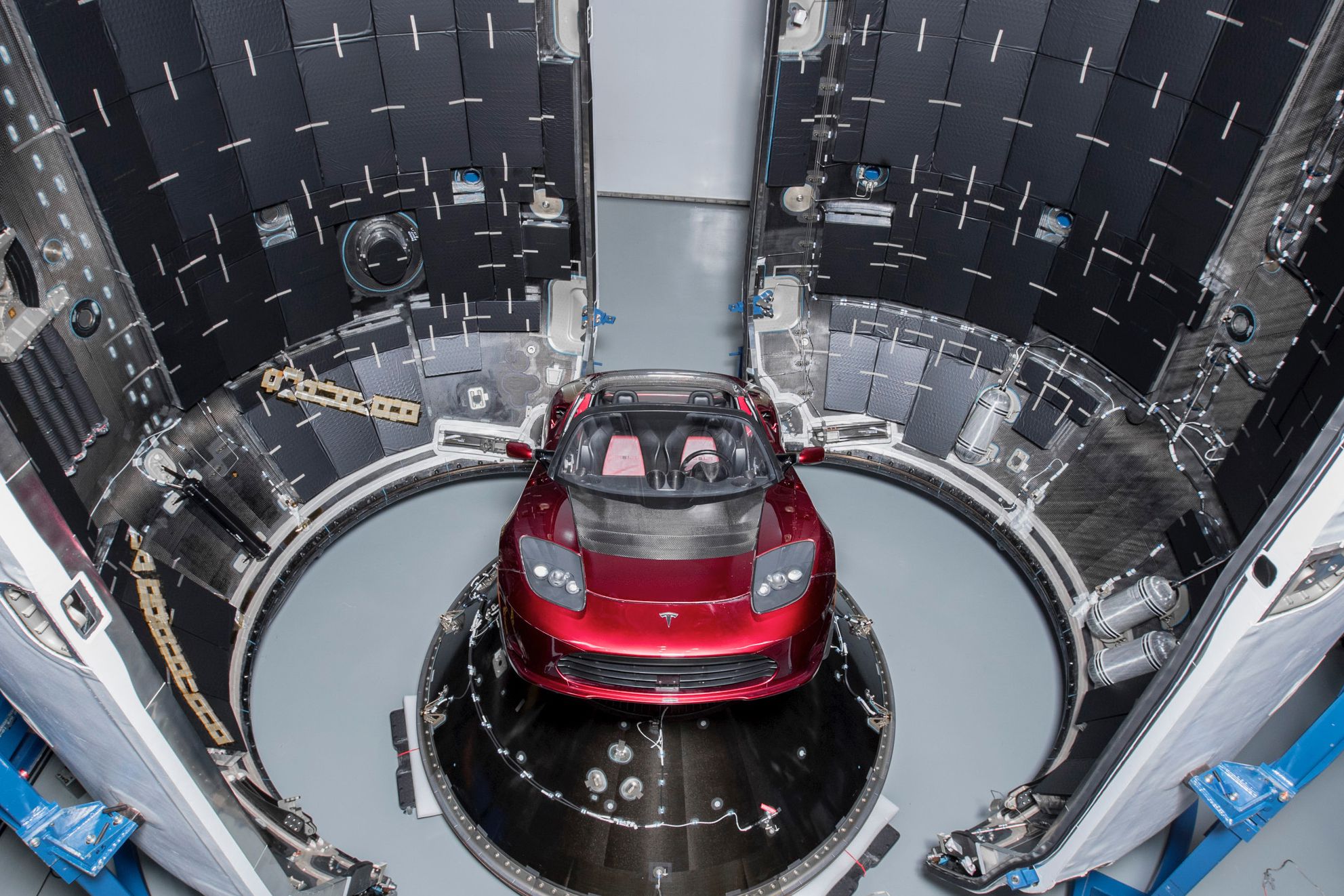
When Falcon Heavy lifted off in February 2018 with Elon Musk’s personal Tesla Roadster as its payload, SpaceX was at a much different place. So was Tesla. It was unclear whether Falcon Heavy was feasible at all, and Tesla was in the depths of Model 3 production hell.
At the time, Tesla’s market capitalization hovered around $55–60 billion, an amount critics argued was already grossly overvalued. SpaceX, on the other hand, was an aggressive private launch provider known for taking risks that traditional aerospace companies avoided.
The Roadster launch was bold by design. Falcon Heavy’s maiden mission carried no paying payload, no government satellite, just a car drifting past Earth with David Bowie playing in the background. To many, it looked like a stunt. For Elon Musk and the SpaceX team, it was a bold statement: there should be some things in the world that simply inspire people.
Inspire it did, and seven years later, SpaceX and Tesla’s results speak for themselves.
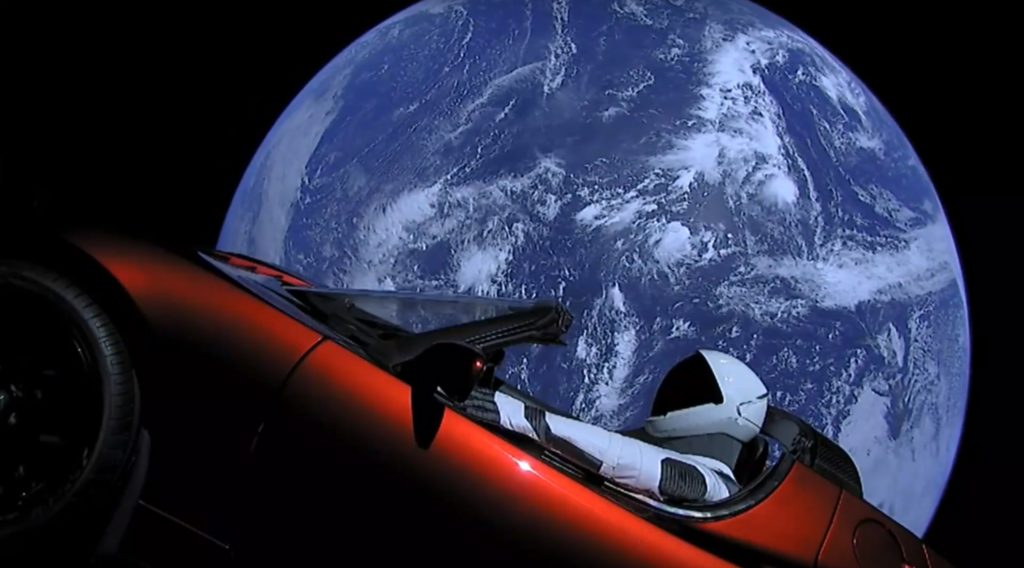
Today, Tesla is the world’s most valuable automaker, with a market capitalization of roughly $1.54 trillion. The Model Y has become the best-selling car in the world by volume for three consecutive years, a scenario that would have sounded insane in 2018. Tesla has also pushed autonomy to a point where its vehicles can navigate complex real-world environments using vision alone.
And then there is Optimus. What began as a literal man in a suit has evolved into a humanoid robot program that Musk now describes as potential Von Neumann machines: systems capable of building civilizations beyond Earth. Whether that vision takes decades or less, one thing is evident: Tesla is no longer just a car company. It is positioning itself at the intersection of AI, robotics, and manufacturing.
SpaceX’s trajectory has been just as dramatic.
The Falcon 9 has become the undisputed workhorse of the global launch industry, having completed more than 600 missions to date. Of those, SpaceX has successfully landed a Falcon booster more than 560 times. The Falcon 9 flies more often than all other active launch vehicles combined, routinely lifting off multiple times per week.
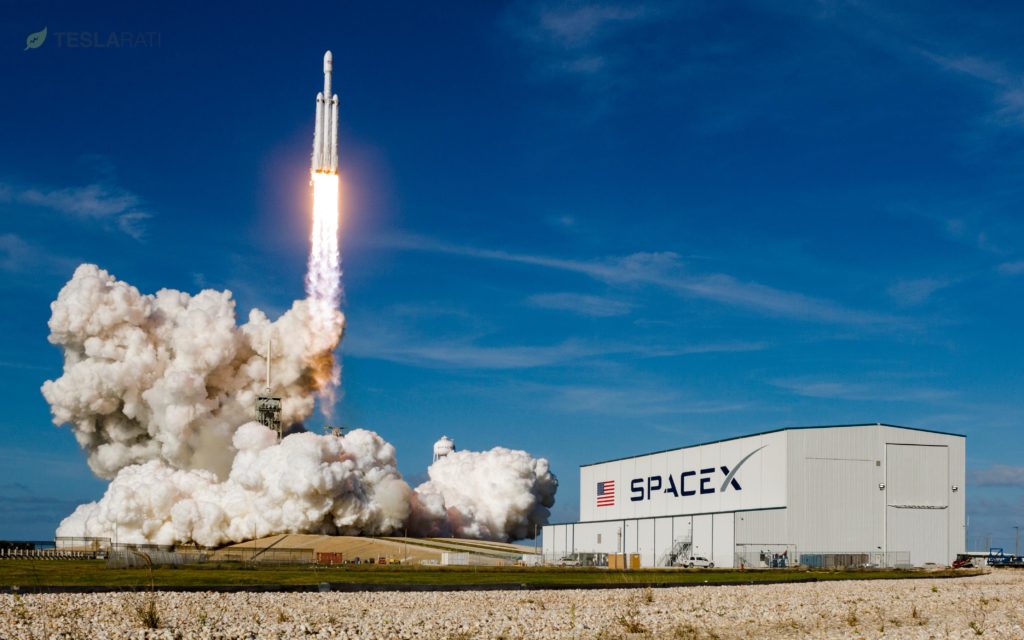
Falcon 9 has ferried astronauts to and from the International Space Station via Crew Dragon, restored U.S. human spaceflight capability, and even stepped in to safely return NASA astronauts Butch Wilmore and Suni Williams when circumstances demanded it.
Starlink, once a controversial idea, now dominates the satellite communications industry, providing broadband connectivity across the globe and reshaping how space-based networks are deployed. SpaceX itself, following its merger with xAI, is now valued at roughly $1.25 trillion and is widely expected to pursue what could become the largest IPO in history.
And then there is Starship, Elon Musk’s fully reusable launch system designed not just to reach orbit, but to make humans multiplanetary. In 2018, the idea was still aspirational. Today, it is under active development, flight-tested in public view, and central to NASA’s future lunar plans.
In hindsight, Falcon Heavy’s maiden flight with Elon Musk’s personal Tesla Roadster was never really about a car in space. It was a signal that SpaceX and Tesla were willing to think bigger, move faster, and accept risks others wouldn’t.
The Roadster is still out there, orbiting the Sun. Seven years later, the question is no longer “What if this works?” It’s “How far does this go?”
Energy
Tesla launches Cybertruck vehicle-to-grid program in Texas
The initiative was announced by the official Tesla Energy account on social media platform X.
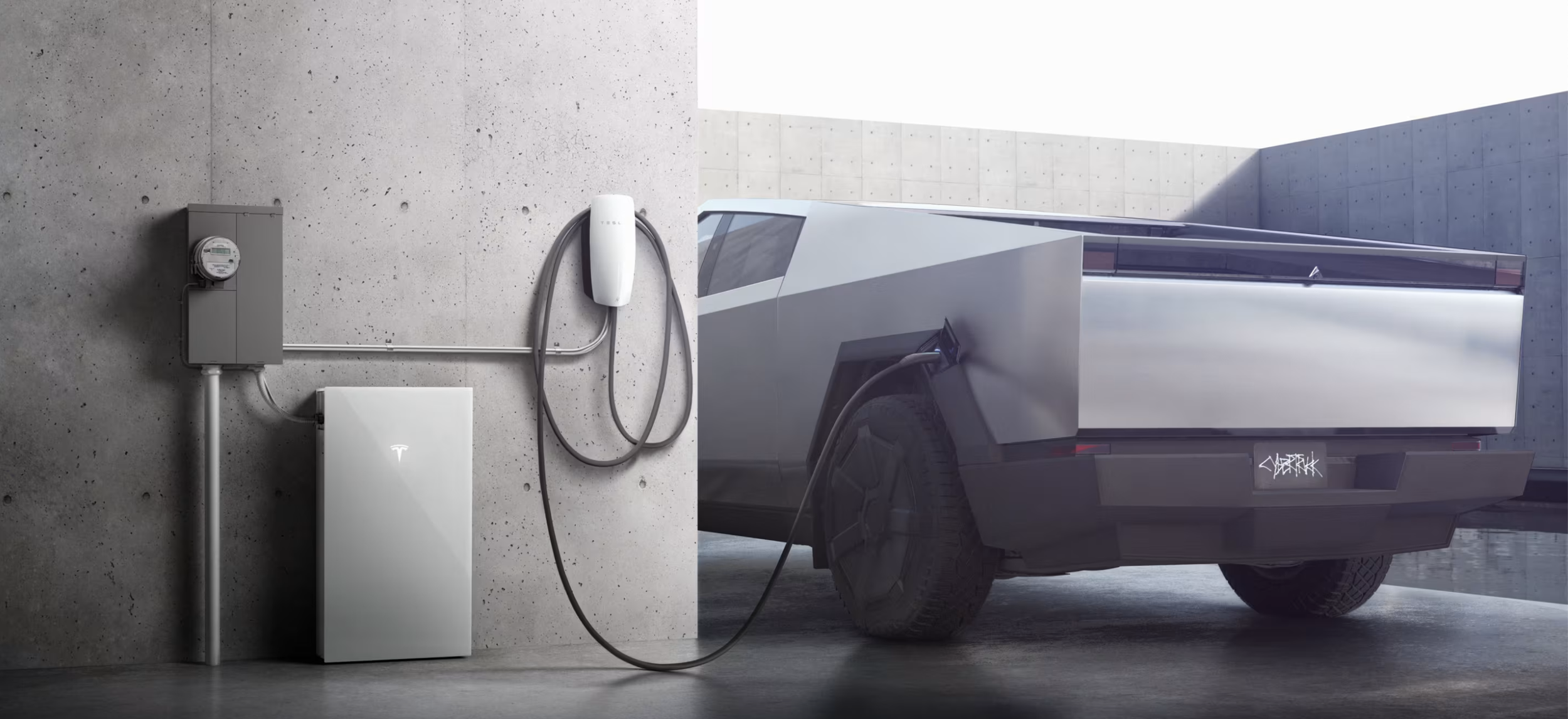
Tesla has launched a vehicle-to-grid (V2G) program in Texas, allowing eligible Cybertruck owners to send energy back to the grid during high-demand events and receive compensation on their utility bills.
The initiative, dubbed Powershare Grid Support, was announced by the official Tesla Energy account on social media platform X.
Texas’ Cybertruck V2G program
In its post on X, Tesla Energy confirmed that vehicle-to-grid functionality is “coming soon,” starting with select Texas markets. Under the new Powershare Grid Support program, owners of the Cybertruck equipped with Powershare home backup hardware can opt in through the Tesla app and participate in short-notice grid stress events.
During these events, the Cybertruck automatically discharges excess energy back to the grid, supporting local utilities such as CenterPoint Energy and Oncor. In return, participants receive compensation in the form of bill credits. Tesla noted that the program is currently invitation-only as part of an early adopter rollout.
The launch builds on the Cybertruck’s existing Powershare capability, which allows the vehicle to provide up to 11.5 kW of power for home backup. Tesla added that the program is expected to expand to California next, with eligibility tied to utilities such as PG&E, SCE, and SDG&E.
Powershare Grid Support
To participate in Texas, Cybertruck owners must live in areas served by CenterPoint Energy or Oncor, have Powershare equipment installed, enroll in the Tesla Electric Drive plan, and opt in through the Tesla app. Once enrolled, vehicles would be able to contribute power during high-demand events, helping stabilize the grid.
Tesla noted that events may occur with little notice, so participants are encouraged to keep their Cybertrucks plugged in when at home and to manage their discharge limits based on personal needs. Compensation varies depending on the electricity plan, similar to how Powerwall owners in some regions have earned substantial credits by participating in Virtual Power Plant (VPP) programs.
News
Samsung nears Tesla AI chip ramp with early approval at TX factory
This marks a key step towards the tech giant’s production of Tesla’s next-generation AI5 chips in the United States.

Samsung has received temporary approval to begin limited operations at its semiconductor plant in Taylor, Texas.
This marks a key step towards the tech giant’s production of Tesla’s next-generation AI5 chips in the United States.
Samsung clears early operations hurdle
As noted in a report from Korea JoongAng Daily, Samsung Electronics has secured temporary certificates of occupancy (TCOs) for a portion of its semiconductor facility in Taylor. This should allow the facility to start operations ahead of full completion later this year.
City officials confirmed that approximately 88,000 square feet of Samsung’s Fab 1 building has received temporary approval, with additional areas expected to follow. The overall timeline for permitting the remaining sections has not yet been finalized.
Samsung’s Taylor facility is expected to manufacture Tesla’s AI5 chips once mass production begins in the second half of the year. The facility is also expected to produce Tesla’s upcoming AI6 chips.
Tesla CEO Elon Musk recently stated that the design for AI5 is nearly complete, and the development of AI6 is already underway. Musk has previously outlined an aggressive roadmap targeting nine-month design cycles for successive generations of its AI chips.
Samsung’s U.S. expansion
Construction at the Taylor site remains on schedule. Reports indicate Samsung plans to begin testing extreme ultraviolet (EUV) lithography equipment next month, a critical step for producing advanced 2-nanometer semiconductors.
Samsung is expected to complete 6 million square feet of floor space at the site by the end of this year, with an additional 1 million square feet planned by 2028. The full campus spans more than 1,200 acres.
Beyond Tesla, Samsung Foundry is also pursuing additional U.S. customers as demand for AI and high-performance computing chips accelerates. Company executives have stated that Samsung is looking to achieve more than 130% growth in 2-nanometer chip orders this year.
One of Samsung’s biggest rivals, TSMC, is also looking to expand its footprint in the United States, with reports suggesting that the company is considering expanding its Arizona facility to as many as 11 total plants. TSMC is also expected to produce Tesla’s AI5 chips.








